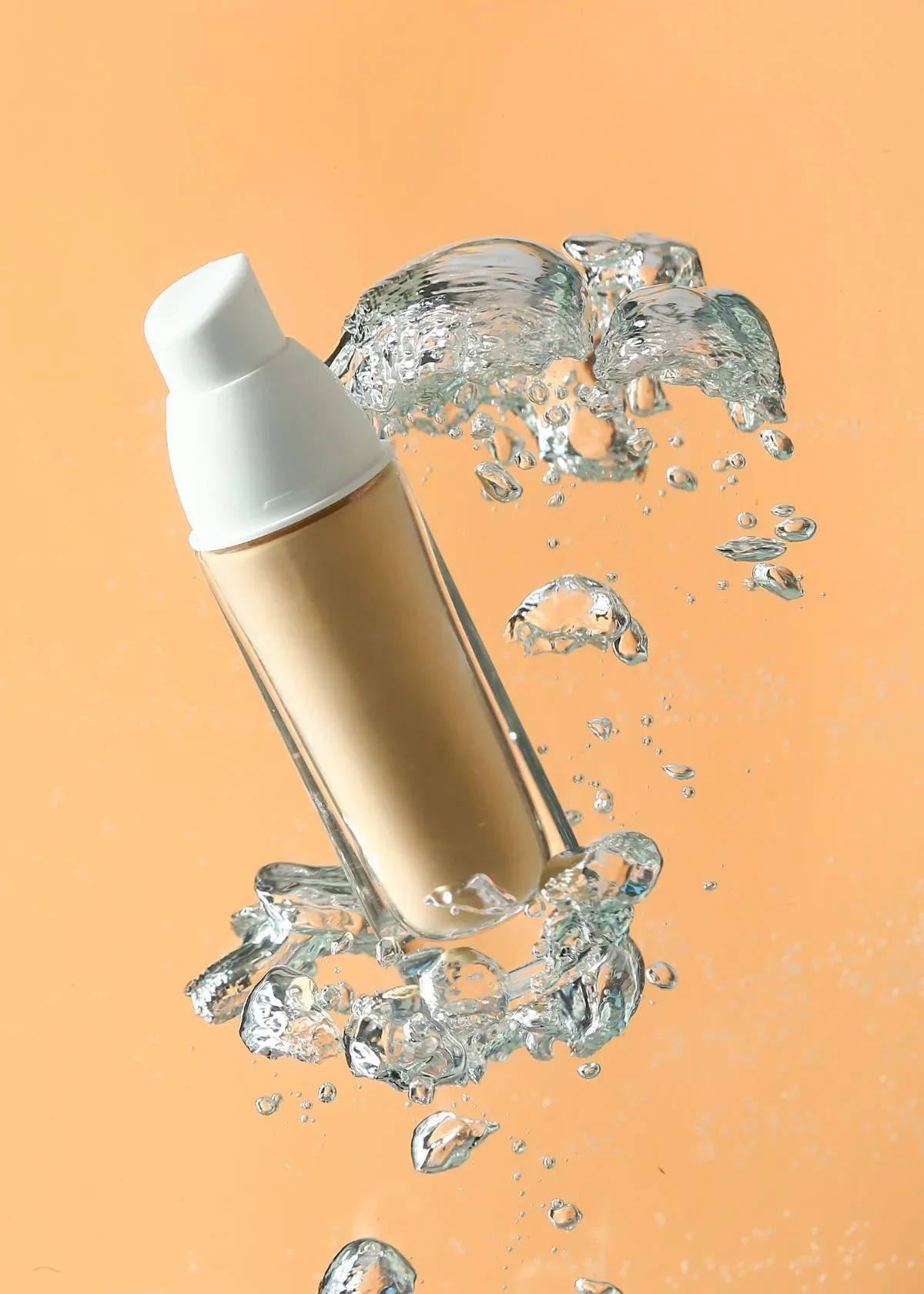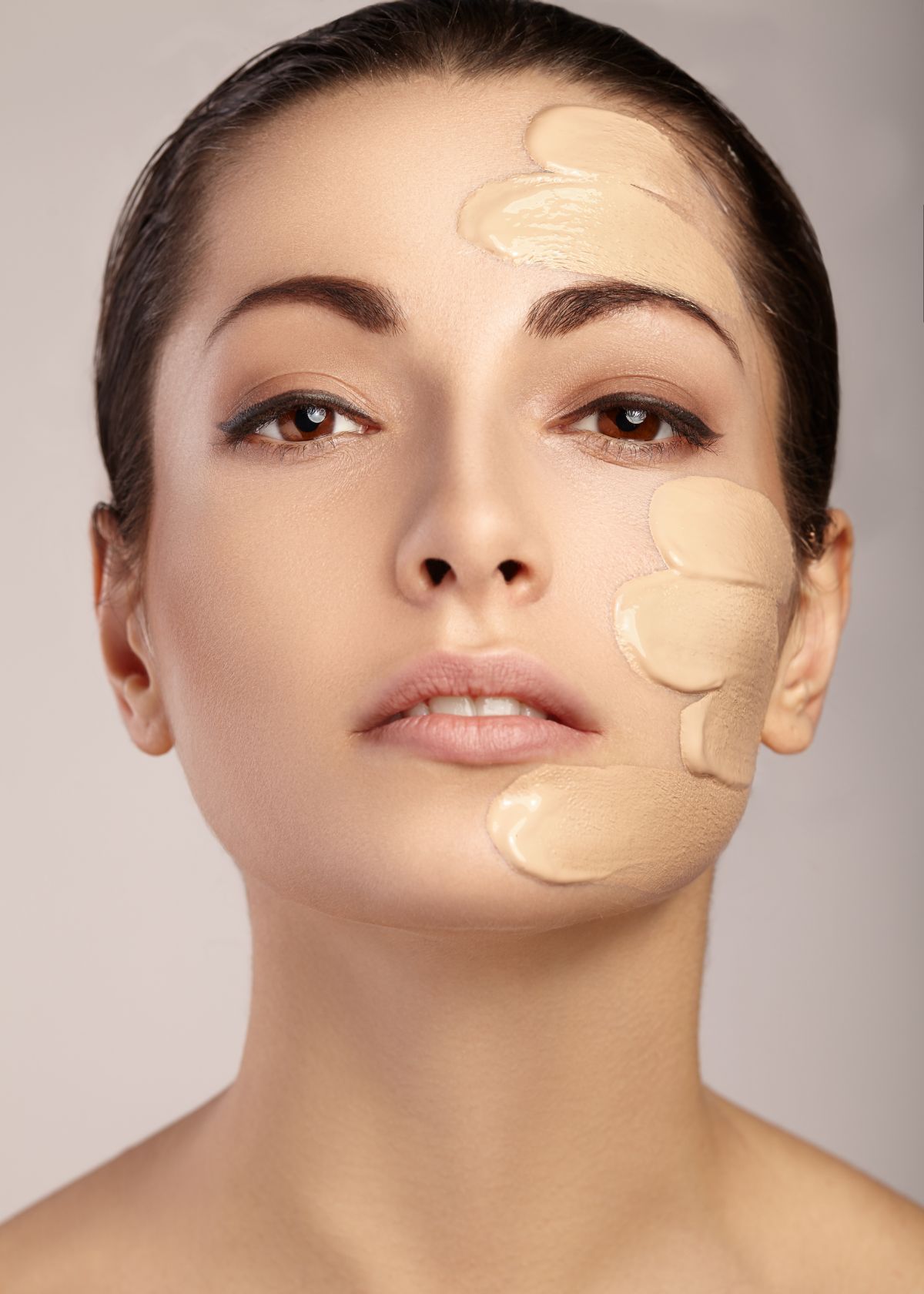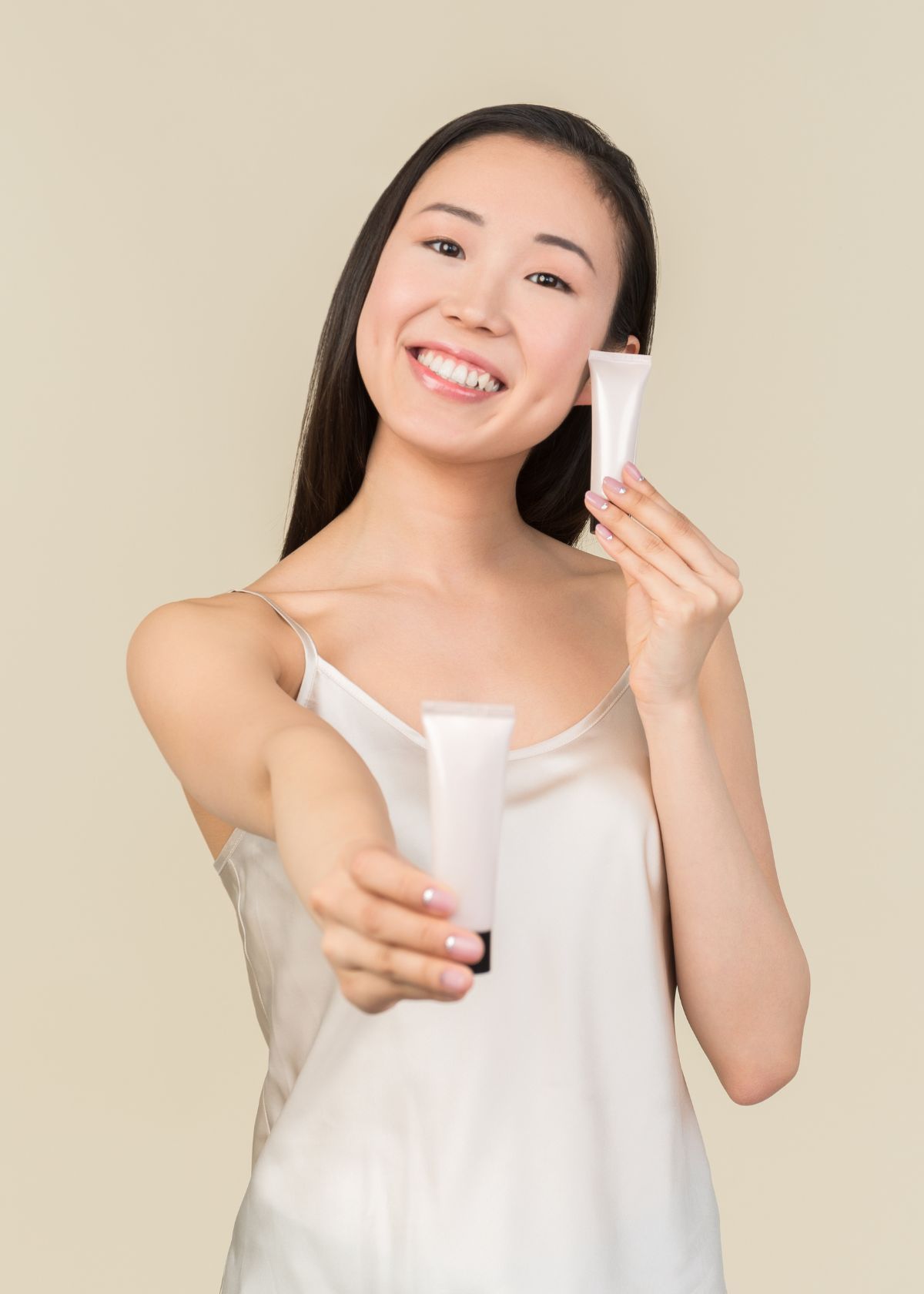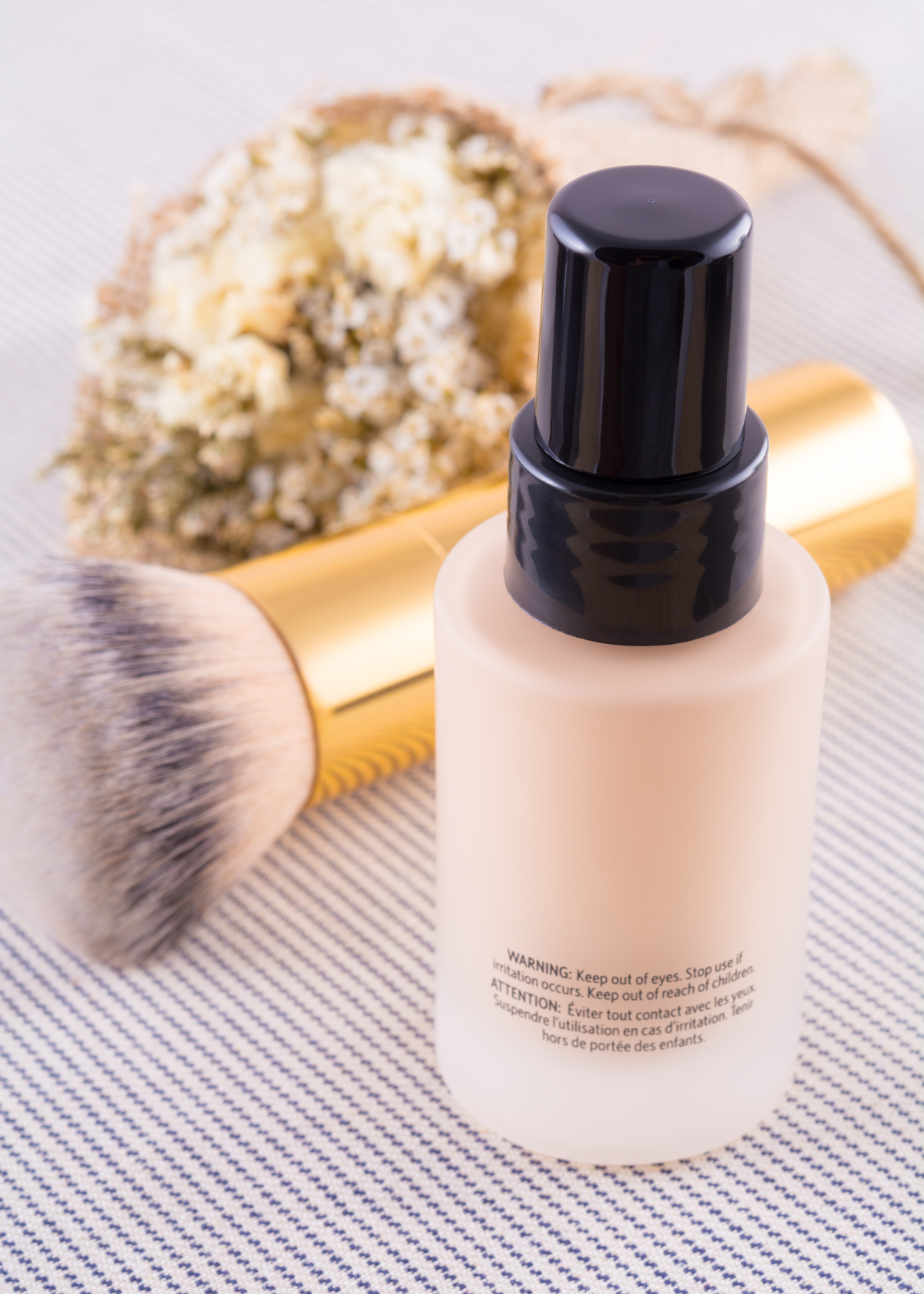Standing in front of the makeup aisle, you might be swamped by a sea of foundation choices. Trust me, I get it—selecting the ultimate base that conceals those sneaky blemishes and creates an even canvas, all without feeling like a mask or looking unnatural, is no small feat.
I've sifted through heaps of information to make sense of choosing 'the one' among liquids, creams, and powders.
In this piece, we'll venture together to select a foundation as unique as your skin type and share insider tips for achieving seamless application time after time.
By the end of our article, you'll be armed with everything necessary for that flawless finish daily! Excited to upgrade your beauty routine? Let's get started!
- Makeup foundations set the stage for a flawless complexion by evening out skin tone, concealing blemishes and imperfections, and creating a smooth base for subsequent makeup.
- Different foundation types cater to various skin needs, including options for dry, oily, combination, and sensitive skin. Moisturizing ingredients are essential for dry skin; oil-free or matte formulas work best for oily skin; lightweight liquids suit combination skin; and hypoallergenic products are ideal for sensitive skin.
- The evolution of makeup has introduced natural and organic foundations free from harmful chemicals, offering benefits like added hydration while catering to those with sensitive skin.
- Inclusive shade ranges ensure that everyone can find a color match regardless of their ethnic background or complexion—this promotes diversity within the beauty industry.
- Latest innovations in foundation makeup include multi-purpose products that serve as serum, moisturizer, and SPF protection all in one, simplifying beauty routines while still delivering essential skincare benefits.
What is a Foundation?

A foundation is a base makeup product applied to the skin before other cosmetic products. It helps even out skin tone, conceal imperfections, and provide a smooth canvas for the rest of your makeup.
Different types of foundations include liquid, powder, mineral, BB creams, and tinted moisturizers.
Definition and purpose
Makeup foundations serve as the essential canvas for a flawless complexion. They're designed to smooth out skin tone and conceal imperfections, creating an even base that enhances natural beauty.
Imagine them as paint primers, but for your face, they prepare the surface so everything applied on top looks better and lasts longer.
The foundation's purpose is multifaceted: not only does it help cover blemishes, redness, or discoloration, but it also often provides added benefits like hydration or sun protection.
Ancient civilizations recognized its value in achieving a desired aesthetic; today's products continue this legacy with advanced formulas tailored to diverse beauty needs.
From liquids that offer sheer coverage to powders that give a matte finish, foundations are pivotal in attaining a uniform complexion while setting the stage for additional makeup products.
Modern foundations are more innovative and multi-purposeful—some can minimize pores, act as a moisturizer, or have built-in SPF to shield skin from harmful rays. Each product contains core ingredients that ensure consistency, whether in liquid form or powder.
The foundation's evolution has made cosmetics more inclusive than ever before, offering an array of shades and types suitable for all skin tones and concerns.
Benefits of Using a Makeup Foundation
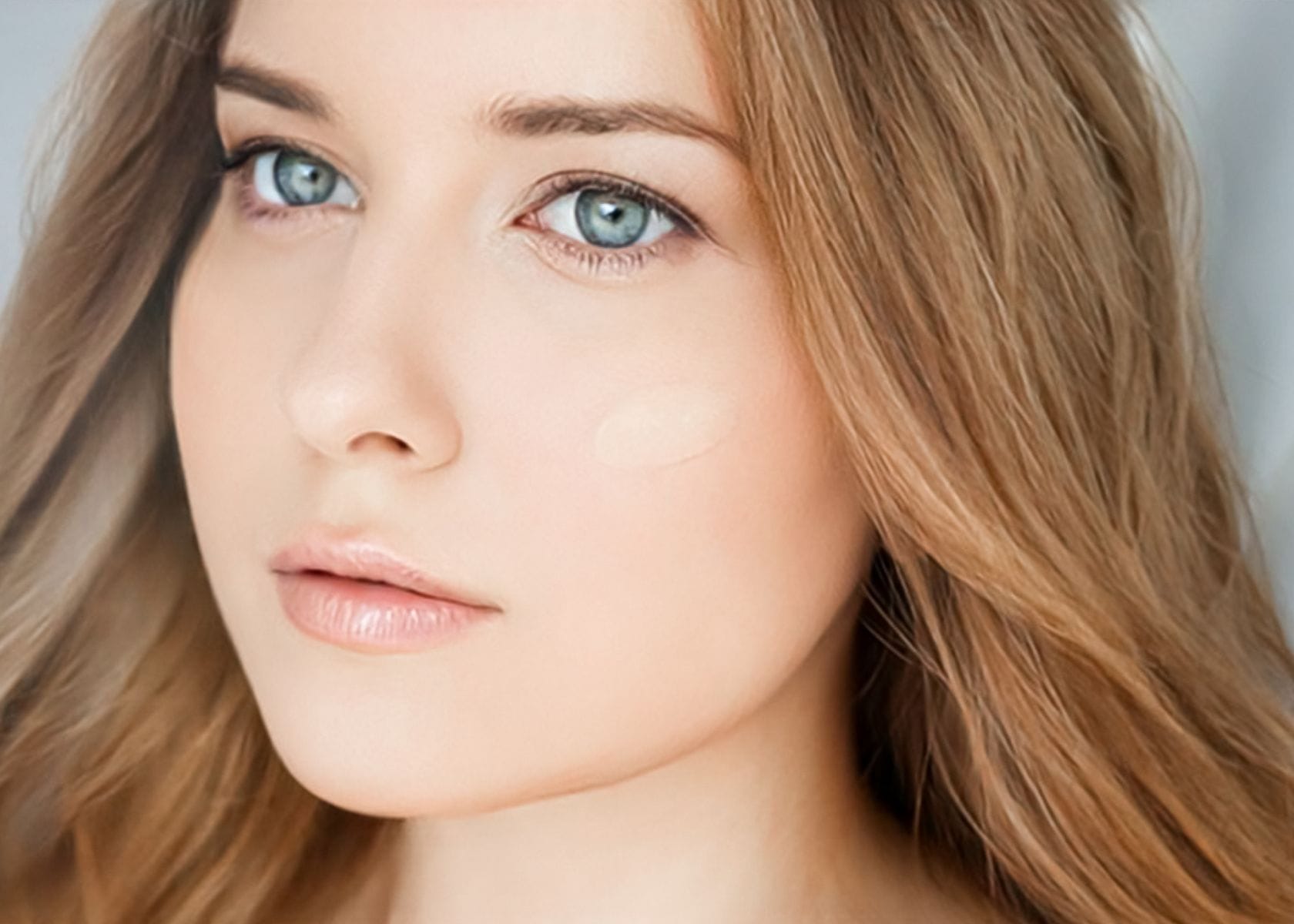
Using a makeup foundation helps to achieve an even skin tone and conceals imperfections, giving you a flawless base for the rest of your makeup. Additionally, it provides long-lasting wear throughout the day for a polished look.
Even skin tone
Foundation makeup is essential for achieving an even skin tone, covering any blemishes, redness, or discoloration to create a smooth and uniform complexion.
With foundation application, you can achieve a flawless base that provides a blank canvas for the rest of your makeup routine.
The use of foundation not only enhances your natural beauty but boosts your confidence by giving you an even and radiant skin tone.
Knowing how each type can cater to various concerns and challenges is crucial to understanding the significance of choosing the right foundation for your skin needs.
Conceals imperfections
Concealing imperfections is one of the key benefits of using a makeup foundation. Whether it's blemishes, redness, or uneven skin tone, a good foundation can provide coverage and create a smooth canvas for the rest of your makeup.
With options such as concealer, CC creams, and mineral foundations available in inclusive shade ranges, there is something to suit every skin type and tone.
These products often contain pore minimizers to make smoother skin appear while providing adequate coverage.
Historically, foundations changed natural skin tones and achieved specific looks or ideals. Today’s foundations have evolved to offer coverage and skincare benefits like paraben-free formulations and natural ingredients that are gentle on sensitive skin.
Long-lasting wear
Foundation makeup with long-lasting wear ensures that your skin looks flawless all day. It provides a smooth and consistent appearance for an extended period, maintaining coverage and reducing the need for touch-ups.
This feature is particularly beneficial when reapplication is inconvenient or not possible, such as during long workdays, special events, or outdoor activities.
Many modern foundations are formulated with long-wearing properties to withstand humidity, sweat, and environmental factors without compromising their effectiveness.
Makeup aficionados often seek foundation options that offer prolonged wear due to their busy lifestyles and the demand for products that provide lasting results.
This desire has led to advancements in cosmetic technology aimed at enhancing the longevity of foundation formulas while ensuring they remain comfortable on the skin throughout the day.
Choosing the Right Foundation for Your Skin Type
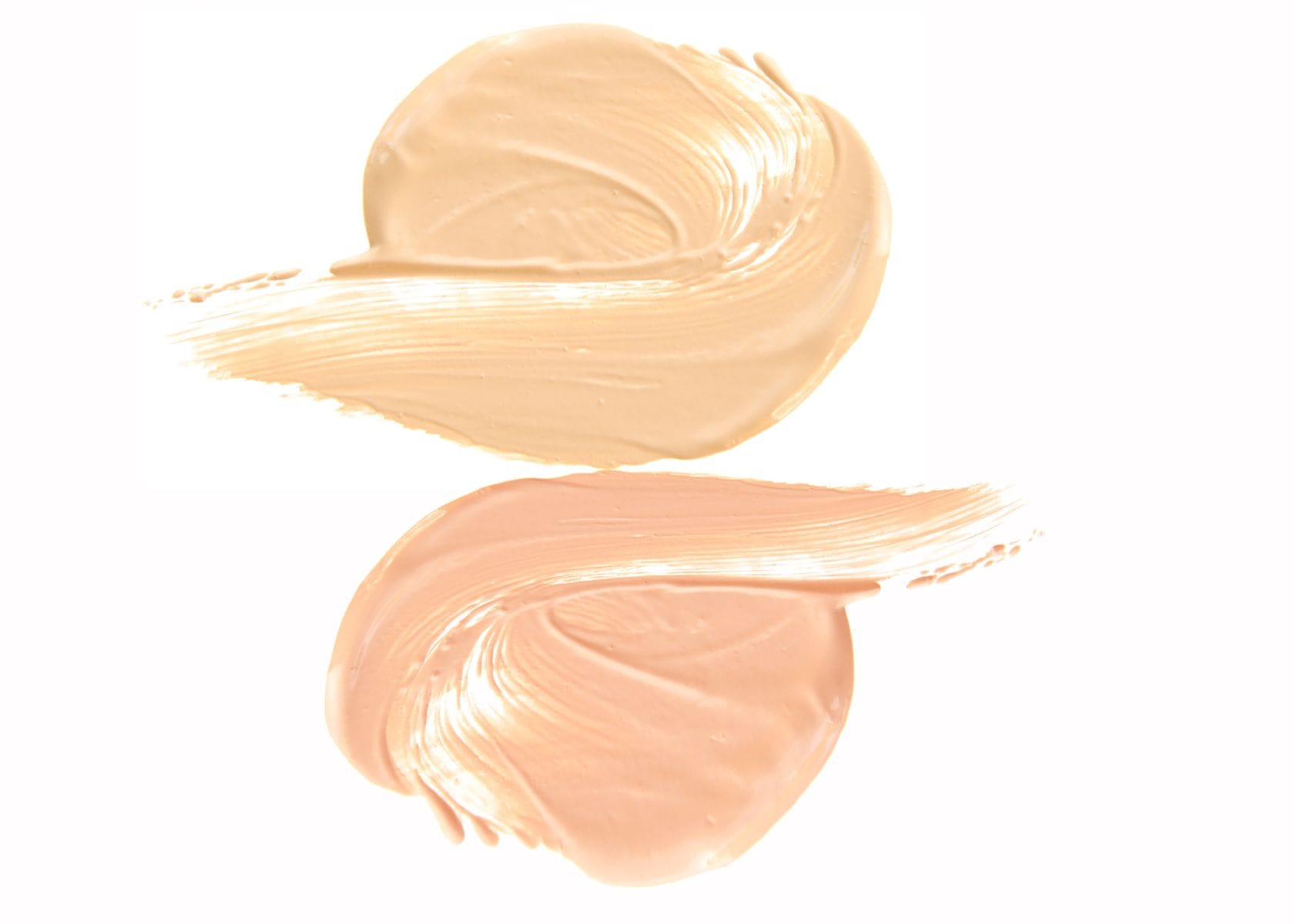
When choosing the right foundation for your skin type, it's important to consider whether you have dry, oily, combination, or sensitive skin. Each type requires a different formulation to ensure a flawless finish and comfortable daily wear.
Dry
Dry skin requires a foundation that provides hydration and prevents flakiness. Look for foundations with moisturizing ingredients like hyaluronic acid, glycerin, or squalane to keep your skin smooth and supple throughout the day.
Opt for liquid or cream formulas as they offer better coverage and are less likely to settle into dry patches. Mineral makeup can also be a good option as it tends to be gentler on the skin and provides natural-looking coverage without emphasizing dryness.
Ensure that your foundation is paraben-free if you have dry skin, as it can cause further dehydration.
Set your makeup with a hydrating setting spray to lock in moisture and prevent your foundation from looking cakey or emphasizing dry areas throughout the day.
Oily
Oily skin can be a challenge when choosing the right foundation. It requires a formula that controls excess oil production and provides a matte finish throughout the day.
Look for foundations labeled as "oil-free" or "matte," designed to absorb oil and reduce shine on the skin's surface. Opt for liquid or powder foundations as they work best with oily skin, avoiding cream-based products that may exacerbate oiliness.
When applying foundation to oily skin, proper preparation is key. Begin by cleansing and toning your skin before applying a lightweight, oil-free moisturizer.
This helps create a smooth base for the foundation application and prevents excessive oil production throughout the day.
Combination
Combination skin can be a bit tricky to work with. With both oily and dry areas, finding the right foundation that won't exacerbate either issue is essential. Look for foundations that offer both hydration and oil control.
These foundations help balance the differences in your skin, giving you an even complexion without making any particular area look too shiny or matte.
When dealing with combination skin, it's crucial to avoid heavy, matte formulas that might emphasize dry patches while also steering clear of overly dewy finishes, which could make oily areas appear greasy.
Sensitive
Sensitive skin requires special attention when choosing a foundation. It’s essential to look for products labeled as hypoallergenic or specifically formulated for sensitive skin.
Avoid ingredients like fragrances, parabens, and other potential irritants. Opt for mineral-based or water-based foundations to reduce the risk of irritation.
Be mindful of SPF content if you have sensitive skin; titanium dioxide and zinc oxide are gentle sunscreen options. Before applying a new foundation to your face, perform a patch test to ensure it doesn’t cause any reactions.
Applying Foundation Properly

To achieve a flawless finish, it's essential to prepare your skin, select the right tools, and use proper blending techniques when applying foundation. These steps ensure that your makeup looks natural and lasts throughout the day.
Preparing your skin
Before applying foundation, ensuring that your skin is prepped correctly will help you achieve a flawless finish. Start by cleansing your face to remove dirt and oil, then follow up with a lightweight moisturizer to hydrate the skin.
It's important to let the moisturizer fully absorb into the skin before applying foundation, as this will create a smooth base for makeup application.
Exfoliating your skin once or twice a week can also help ensure an even foundation application. This process removes dead skin cells, resulting in a smoother and more radiant complexion.
Choosing the right tools
To achieve a flawless makeup application, selecting the right tools is crucial. A quality foundation brush or sponge ensures smooth and even coverage. Look for brushes with densely packed bristles and sponges that expand when dampened, helping to blend the product seamlessly into the skin.
It's also essential to have clean tools to prevent the transfer of bacteria onto your skin – use gentle, paraben-free cleansers specifically designed for makeup brushes and sponges.
A good magnifying mirror can help you see imperfections more clearly during application. This will allow you to blend effectively and ensure no streaks are left behind.
Additionally, having good lighting while applying foundation is necessary as it helps you achieve an even finish without missing any spots.
Proper blending techniques
I blend foundation using a damp makeup sponge for a seamless finish. I start from the center of my face and blend outwards, focusing on areas that need more coverage.
This technique helps to avoid cakey or uneven application, providing a natural-looking complexion with full coverage.
Blending in light layers ensures an even product distribution and prevents a heavy, caked-on appearance.
After mastering proper blending techniques, exploring the latest innovations in makeup foundations is essential to stay up-to-date with beauty trends and find products that suit your needs.
Latest Innovations in Makeup Foundation
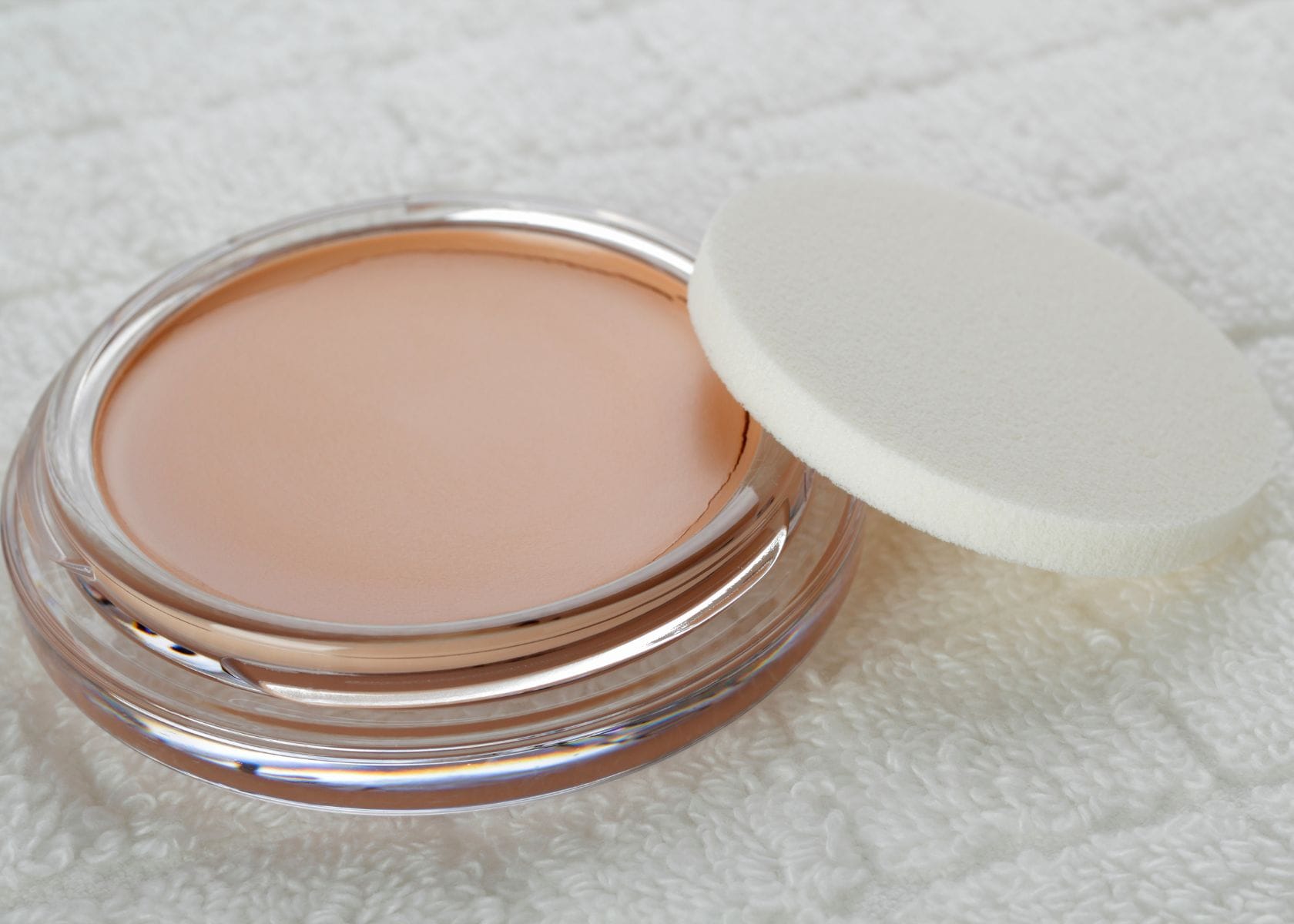
Brands now offer natural and organic foundation options and inclusive shade ranges to cater to a diverse range of skin tones. Multi-purpose foundations that combine serum, moisturizer, and SPF are also gaining popularity for their convenience and efficiency.
Natural and organic options
Some foundations now come in natural and organic options, free from parabens and other harmful chemicals. These products cater to individuals who prefer clean beauty without compromising on performance.
They typically contain nourishing ingredients such as aloe vera, shea butter, or coconut oil that offer skincare benefits while providing coverage.
Natural and organic foundation options often appeal to those with sensitive skin due to their gentle formulas.
Many natural and organic foundations also include SPF protection, addressing the growing concern for sun damage.
With advancements in green beauty, a wider range of shades are available to accommodate different skin tones.
Inclusive shade ranges
Transitioning from natural and organic options, it's also crucial to consider the importance of inclusive shade ranges when choosing a foundation. I acknowledge the significance of offering various shades to cater to diverse skin tones.
This ensures that everyone, regardless of their ethnic background or complexion, can find a suitable match for their skin. An extensive selection helps promote inclusivity and representation within the beauty industry.
Cosmetic companies have recognized the need for diversity in shade ranges and are making commendable efforts to expand their product lines accordingly.
By offering a broader spectrum of colors, these brands aim to celebrate individuality and empower individuals to embrace their unique beauty confidently.
Multi-purpose foundations (serum, moisturizer, SPF)
Expanding on the concept of inclusive shade ranges, multi-purpose foundations take versatility to the next level. These innovative formulations not only provide coverage but also deliver added benefits for your skin.
Some multi-purpose foundations act as a serum, providing nourishment and anti-aging properties to your skin. They can also double up as a moisturizer, helping to keep your skin hydrated throughout the day.
Additionally, many of these foundations are infused with SPF, offering protection from harmful UV rays while giving you a flawless look.
Frequently Asked Questions About Foundations
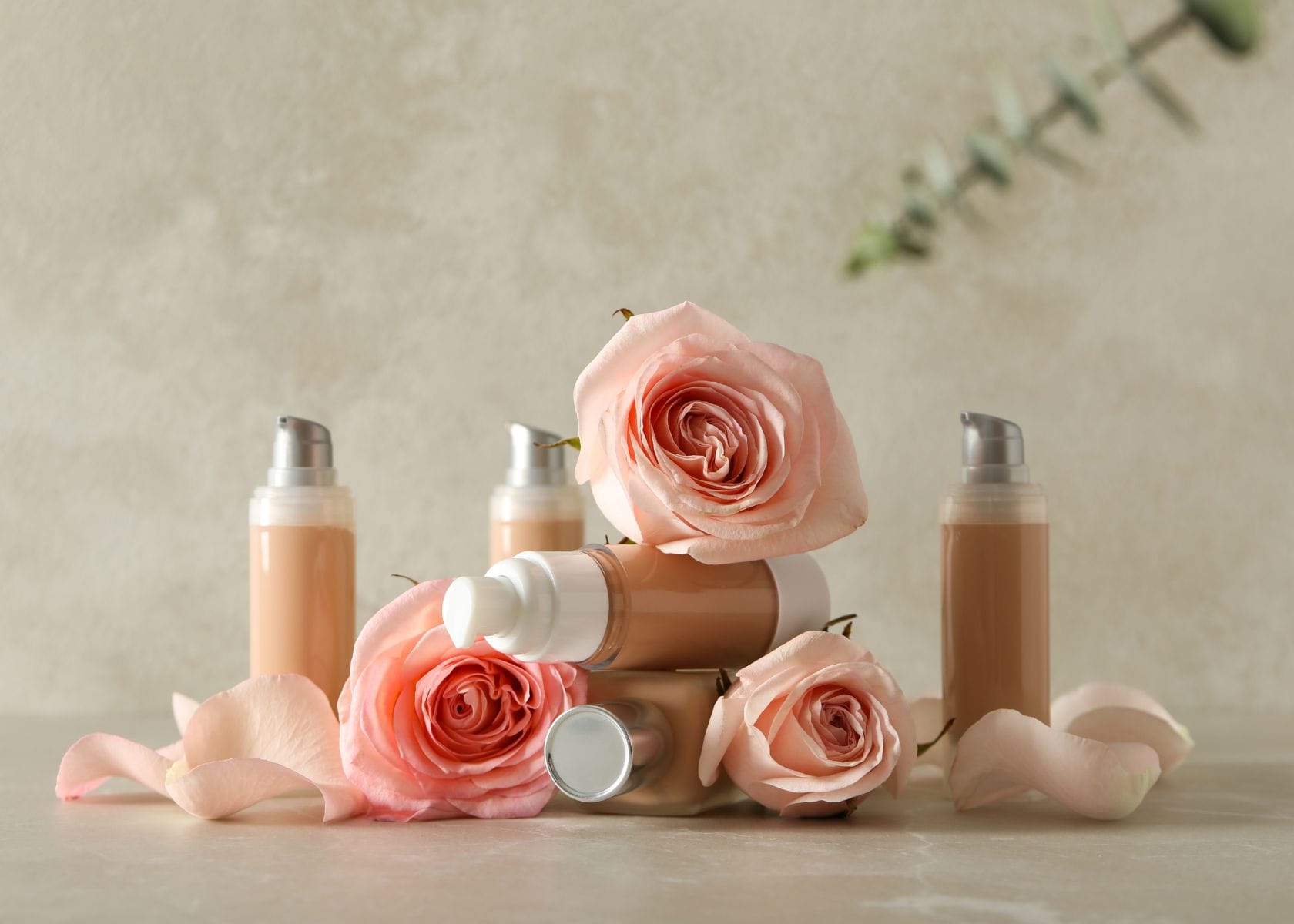
What is a makeup foundation used for?
A makeup foundation is a beauty product that provides a base for the rest of your cosmetics, giving your skin even coverage and improving your complexion.
Can I use foundation on its own?
Yes, the foundation can be worn alone to smooth out skin tone or used with other face makeup like concealer or blush to create a full look.
Are there paraben-free foundations available?
Definitely! Many beauty brands offer paraben-free foundations as part of their complexion products line, catering to those who prefer makeup without preservatives.
Should I apply primer before my makeup foundation?
It's a good idea! Applying a cosmetics primer before your foundation helps prepare your skin and can make your face makeup last longer throughout the day.
Conclusion
Makeup foundations are crucial in achieving an even skin tone and concealing imperfections. The tips for choosing the proper foundation for your skin type are practical and easy to implement.
Have you considered how these strategies can enhance your makeup routine? Emphasizing the importance of the foundation will significantly improve your overall appearance.
Explore additional resources or guidance on finding the perfect makeup foundation that suits your needs. Read more articles on our board to find out the best makeup advice.
References
- Franklin & Marshall College. (2022, November 18). New research on how makeup applied only to facial features increases perceived skin evenness. https://phys.org/. Retrieved January 5, 2024, from https://phys.org/news/2022-11-makeup-facial-features-skin-evenness.html
- Guichard, S., Roulier, V., Bodnar, B. S., & Ricard, A. (2022). Facial foundation. Cosmetic Dermatology, 231–243. https://doi.org/10.1002/9781119676881.ch24
- Lanzendoerfer-Yu, G. (2022, May 15). Cosmetic skin-types – a myth or chaos? International Association for Applied Corneotherapy. https://corneotherapy.org/articles/cosmetic-skin-types-a-myth-or-chaos
Learn More About Other Related Topics of Foundations
